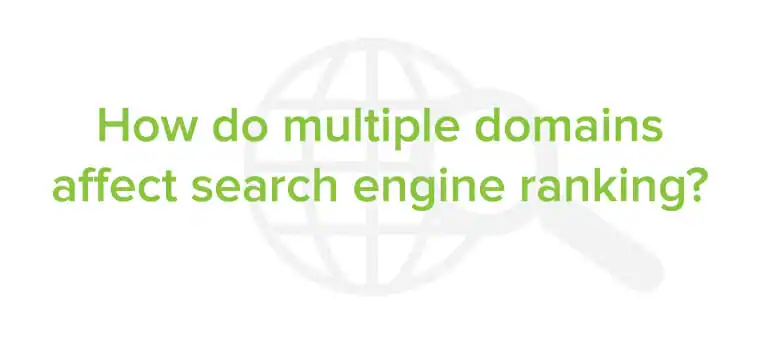How many domain names do you need for an online business? One? Three? Twelve?
We asked exactly that question in a recent survey conducted on Who.is. According to the results, 41.3% of survey takers believe that businesses need 2 to 4 domain names.
Why the need for multiple URLs? Maybe you want to protect your brand by registering your name on multiple top-level domains. Or perhaps you want a unique domain name that points to the area of your website that will be most useful to certain visitors.
But here’s the real question: How will having multiple domain names affect your search engine rankings?
Unfortunately the answer is not black and white.
Multiple domains can be beneficial for businesses who want to take advantage of specific keywords that can be linked back to their website. They are also excellent tools for a better user experience. International businesses can use several country code top-level domains (like .US and .UK) to get visitors to the area of the website that is most relevant to them, especially if you are dealing with multiple languages.
But a problem that could arise from using many different domains for a single website is that inbound links become diluted. If some of your inbound links point to one URL and the rest point to another, search engines will not recognize that they all go to the same location. Instead, you will only get partial credit for the inbound links your website has accumulated.
But there is a solution for taking advantage of keyword-rich domains while following SEO best practices: Use a 301-redirect, or URL forwarding, to direct all of your secondary domains to a primary one. That way, search engines will not see the other domain names as duplicates of your website, but as a way to reroute traffic from one place to another. With this solution, you can still use all of your unique, easy to remember URLs while making search engines happy by keeping all of your website content in one location.
How will New Domains affect SEO?
Google recently announced that New Domains will be ranked the same way .COM and .NET, and that algorithm updates will not favor new gTLDs over generic ones. However, the ability for individuals and businesses to use highly-relevant and sought after keywords in their domains is proving to be advantageous. For example, searching for “jacksonville attorney” brings up a New Domain as the first non-sponsored result. That’s pretty impressive considering how young these websites really are!

